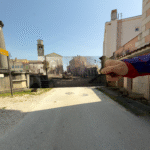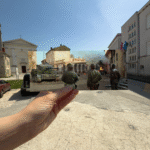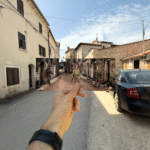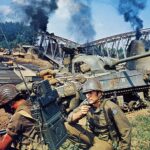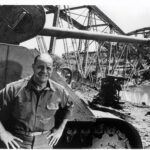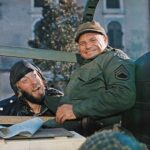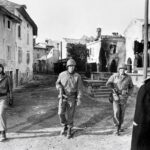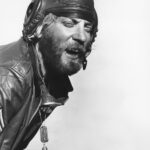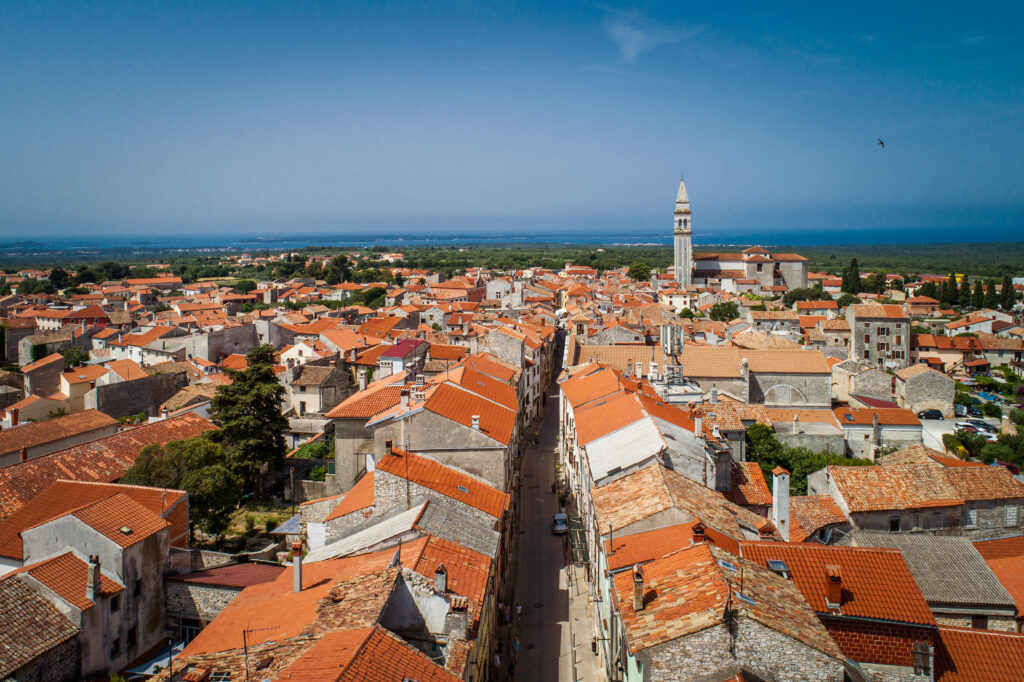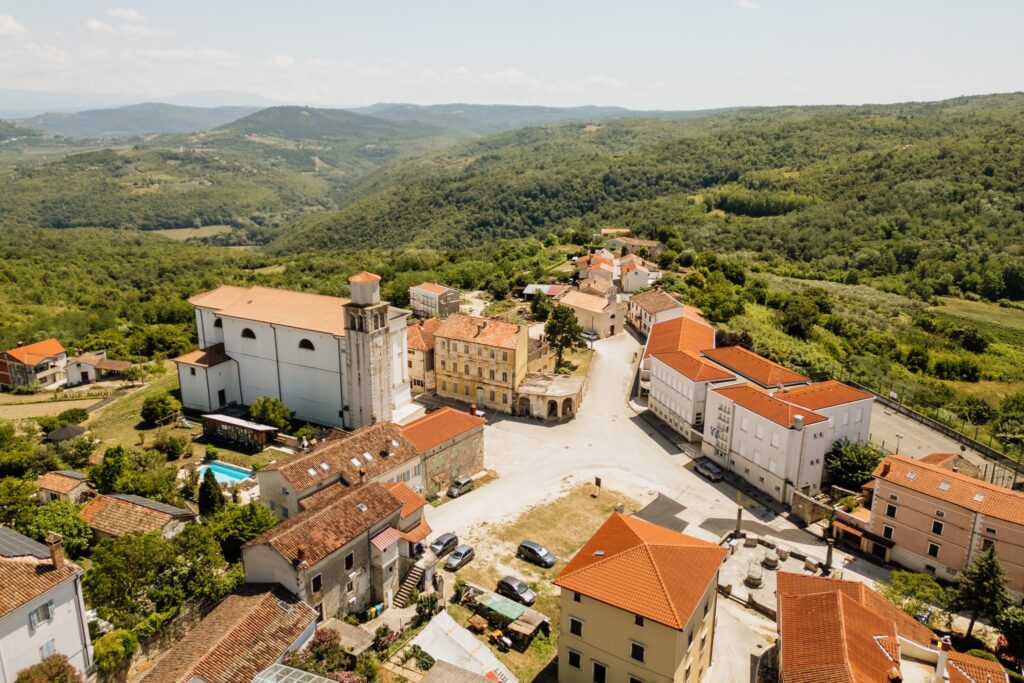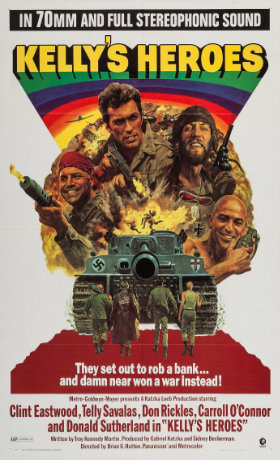
Synopsis
“Kelly’s Heroes” is a cult 1970 war comedy starring Clint Eastwood, Donald Sutherland, Telly Savalas, and Don Rickles. The story follows the group of American soldiers who, during World War II, plan to rob a Nazi gold bank behind enemy lines. It was partly filmed in Istria, especially in Vižinada, which became the location of a famous scene of military column of tanks, as well as the spectacular ending. Istrian hinterland served as an authentic substitute for occupied France thanks to its specific landscapes and the openness of film co-production in Yugoslavia at the time. It is still considered as the most famous American title filmed in Istria.
details
Original title: Kelly’s Heroes
Also known as: Zlato za odvažne
Year: 1970
Country of production: USA, Yugoslavia
Production: Metro Goldwyn Mayer, Katzka-Loeb Production, Avala Film, The Warriors Company
Genre: comedy, war, adventure
Directed by: Brian G. Hutton
Starring: Clint Eastwood, Telly Savalas, Don Rickles, Donald Sutherland, Jeff Morris, Stuart Margolin, Perry Lopez, Carroll O'Connor, Karl-Otto Alberty, Yves Montand, Harry Dean Stanton
Filming locations in Istria: Kaštelir, Labinci, Karojba, Vižinada, Nova Vas
Other locations: Beočin, Novi Sad, Kovilj, Obrenovac, the bridge on the Kolubara river, Vrdnik, Vojvodina
REVIEW
KELLY'S HEROES, directed by Brian G. Hutton, 1970
ANTI-WAR CAMPAIGN FOR GOLD BARS
The extremely entertaining, unusual war film from 1970 is an ingeniously directed war spectacle with elements of adventure comedy. From the number of serious and hard-hitting war dramas (Croatian translations include the versions “Kellyjevi junaci” and "Kellyjevi heroji”, among which “Gold for the Brave” is both a mimetically and semantically excellent and at the same time accurate translation in the spirit of the Croatian language, and also according to the premise of the film), it stands out with its relaxed and wacky atmosphere, unforgettable, iconic action scenes and intelligent approach to satire of the American military mentality.
The story is set during World War II, when a former American lieutenant Kelly accidentally learns from a captured German colonel about a warehouse of gold bars hidden in a bank in a French village, deep behind the enemy lines. Kelly uses various methods to gather a diverse group of co-fighters for an unauthorized, personal, secret operation which turns into a crazy, improvised military invasion. Kelly and his platoon of ironic heroes soon embark on the final showdown with the German Tiger tank unit guarding the bank. All of them are equally paranoid that the others, joined with them, will find the gold first.
The main actors are Clint Eastwood as a quiet, calculating leader Kelly, who retains his signature cold-blooded charisma. Telly Savalas is a cynical sergeant Big Joe who complains at first, but soon fully accepts the mission. Donald Sutherland as Oddball, a drugged commander of an American tank Sherman, in his hippie style, almost twenty years before the hippies even appeared, rides the tank dead serious and repeats the same line: “Always with the negative waves, Moriarity”.
Extremely well-characterized and contrasting characters, along with carefully crafted sets with lots of scenography details, create an excellent atmosphere. The cast is authentic, and all characters, from the protagonists to the episodic appearances, are very well constructed and developed. Their relationships, reactions and character lines gradually painted the narrative of a layered and complex premise, which was realised with an exceptional directing concept. The film keeps an excellent pace considering that the image deals exclusively with warfare, in its 143 minutes of duration.
Don Rickles is a greedy supply officer Crapgame, and Carroll O’Connor plays the hilarious and manic General Colt, who gloats and triumphs while having no idea what the troops under his command are doing in the field behind his back. Jeff Morris is a rigid Texas soldier Cowboy, and Len Lesser is sergeant Bellamy, whom Oddball manages to persuade to join the action with his tank unit. Young Harry Dean Stanton is a fast and skilful machine gun loader Willard, while Karl Otto Alberty is a German tank driver, who gives a surprisingly anti-war note in the final scene of the film.
The film was made just three years after Leone’s classic “The Good, the Bad and the Ugly”, and Hutton honoured the cult scene and found a way that the three protagonists risk their own lives by walking in front of the tank, while Morricone’s riff plays on the soundtrack. That scene is actually much stronger outside of this film than inside it because it is insane and if it were to be extracted, it would be a hole in the script, but it works great in this context because it’s legendary.
The balance between satirical comedy and war action is excellent. The fight scenes, especially the mine field scene and the final battle in the French village Clermont, shot in Vižinada, were directed with an extreme tension and a dose of visual play which seems comic-book-like. The final battle, which begins with the (fake) ringing of a church bell to get the tank as close as possible, then continues with face-to-face battles and street battles and tanks, served as an inspiration for Spielberg’s “Saving Private Ryan”, although Hutton’s has much more charm, rich scenic movement and immediacy.
The music playing from the speakers on Oddball’s tank as they approach stone houses and break through walls can be interpreted in many ways, as scaring or relaxing the opponent or for relaxing the attacker. But it can definitely be linked to many iconic scenes of war strategy in later films, such as the inspiration for the helicopter attack scene with Wagner’s “Ride of the Valkyries” in Coppola’s “Apocalypse Now”.
The visual impression is very compelling, and the excellent wide angles by Gabriel Figueroa turned the space into a backdrop of exceptional cinematic element, with live and natural colours. The music was written by Lalo Schifrin, with the recognizable jazz and funky themes, while the title song “Burning Bridges” by Mike Curb is stylistically completely unusual for a war film, nostalgically charming and rounds out and softens the war tactics. jazz i funky temama, dok je naslovna pjesma „Burning Bridges” Mikea Curba, stilski posve neobična za ratni film, nostalgično šarmantna te zaobljava i omekšava ratne taktike.
By mocking military hierarchy, glorified honour and the rigid rules of war, the film “Kelly's Heroes” offers the story of a group of soldiers driven by a simple motivation - greed. But, with all the humour, the sub-text powerfully conveys anti-war message: the war is a chaos in which the most cunning ones, not the boldest ones survive. This film is for relaxation, laughter, and a solid dose of action supported by subversive criticism, and, as the Croatian title itself says, it is truly both literal and metaphorical gold.


